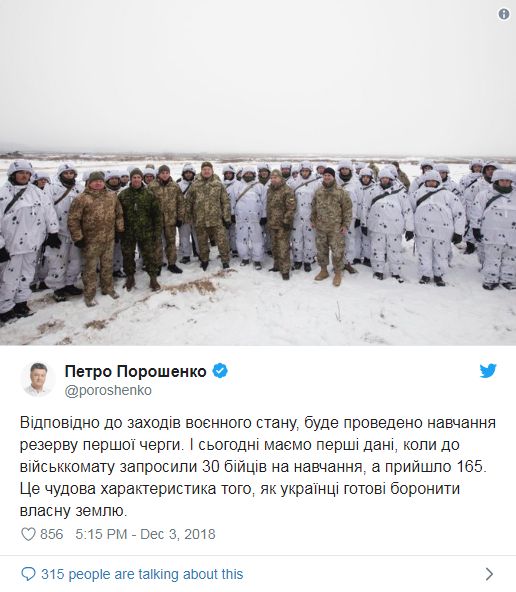Jim CAREY
While much of the western media is fretting over the decision by US President Donald Trump to withdraw American troops from northern Syria there is another potential conflict brewing. This time, the trouble is, once again, coming from Ukraine, where NATO may end up getting the confrontation with Russia they so desire.
Last month, the long-simmering tension between Russia and Ukraine came to a head when Ukrainian Navy ships entered the Sea of Azov heading towards the Kerch Strait. According to Moscow, this was a violation of Russia’s territorial waters and resulted in the Ukrainian ships being stopped by Russian vessels and 24 sailors being detained.
Even though this event took place in late November and now it is almost January, the fate of the Ukrainian sailors seems settled with the denial of an appeal by five of the detainees by a Russian court this week. The court decided against the appeal of five of the sailors to end their time in custody and declared that they would be held by Russia until the end of January.
Predictably, all 24 of the Ukrainian sailors didn’t take the news of the failed appeal well as they have already been attempting to use their arrests as propaganda. The sailors’ legal team even doubled down on this after the ruling, with one of their Russian lawyers, Nikolai Polozov posting on Facebook that “As of December 27, all 24 captured Ukrainian sailors told the investigation that they were prisoners of war.”
While it may seem surprising to hear a Russian lawyer say this, he is likely just reflecting his clients’ attitudes. This is also a reflection of the overall attitude of the Ukrainian government which now considers Russia stopping their vessels from violating their territory as “an attack.”
In fact, following the last “attack,” Ukraine has done nothing but prepare for a future act of Russian aggression which they say is likely. The initial sign of this attitude was the fact that Ukrainian President Petro Poroshenko declared martial law following the incident in November to prepare the military for potential conflict (which likely didn’t work) and, although he has called it off now, the military is now fully ready for a confrontation.
This sentiment was voiced publicly as recently as this past holiday weekend when Vice Admiral Andriy Tarasov, chief of Ukraine’s naval staff told Kyiv post that “There’s a war going on, initiated by Russia…and this war is raging at the sea too, since 2014. Whether we want and don’t want to lay low at bases and offices; we have to fulfill our duties regarding the protection of our sovereign interests. And the sovereign interests of Ukraine apply to the Kerch Strait as well.” Tarasov then went on to warn Russia that, should they attack again his country is “fully entitled by international and Ukrainian law,” to apply the rules of war to the situation as far as military responses go.
Moscow, for their part, has called out this dangerous behavior by the military junta that still rules in Kiev since the Euromaidan coup in late 2013. Following these latest threats by Ukraine to respond to an attack that hasn’t happened (and that there are no signs of) Russian officials have rightfully deemed this language as provocative.
Foreign Ministry spokeswoman Maria Zakharova said as much on the 24th when she told reporters that based on Kiev’s actions, “it is quite possible” Ukraine “might switch to full-scale combat actions within the next few days.” Most western media, of course, treated Zakharova’s statement as the provocation yet this was at the same time that Kiev had ordered more troops to their border with Russia in preparation for a potential clash.
As of right now, Kiev and Moscow are currently in a standoff and it is unclear which side (probably Ukraine) if any, is going to make the first actual military move but the two countries are continuing to fight in the economic sphere (as has always been the case). Russia has already expanded their sanctions on Ukraine freezing the assets of 68 Ukrainian companies and over 300 individuals.
There are also elections in Ukraine next year and these further sanctions, on top of the rampant government corruption, are likely to make things hard for Poroshenko who already has lost the support of over 50% of Ukrainians according to some polls. With election prospects like these, Poroshenko may be looking to make a grand gesture to drum up support among voters. While an attack by Ukraine on Russia would presumably need NATO support before going forward, Poroshenko may be getting desperate enough to skip that step.









